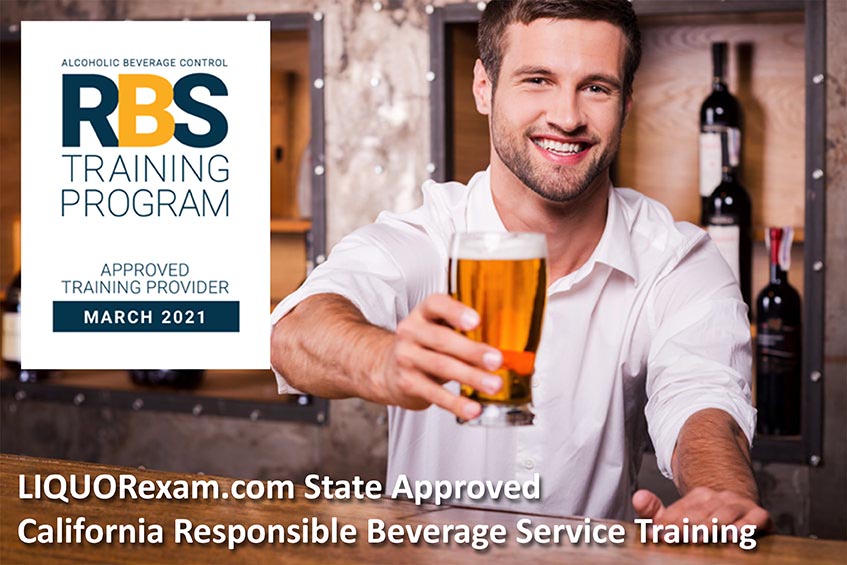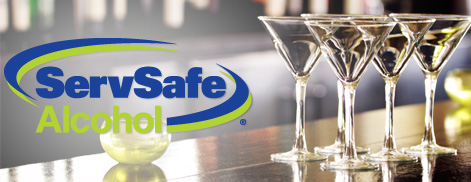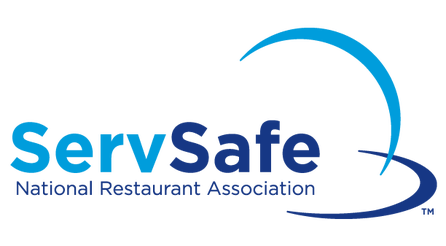Everything You Need to Know About the servsafe food handlers card and How to Get One Quickly
Everything You Need to Know About the servsafe food handlers card and How to Get One Quickly
Blog Article
Master Accountable Alcohol Solution With Comprehensive Accreditation Programs
The proficiency of accountable alcohol solution is not merely a governing requirement; it is a basic element that boosts the reputation and functional integrity of establishments within the friendliness industry. Comprehensive accreditation programs offer vital insights into neighborhood laws, efficient treatment techniques, and client involvement strategies. By purchasing these training campaigns, companies can promote a society of responsibility among their personnel, mitigating threats and enhancing client contentment. However, the path to efficient execution and its lasting benefits may not be as simple as it appears. What challenges lie ahead for those who seek to raise their solution criteria?

Relevance of Accountable Alcohol Solution
Responsible alcohol service is vital to advertising public health and safety in facilities that serve alcoholic drinks. It includes a variety of methods designed to stop the overconsumption of alcohol, lower the risk of alcohol-related damage, and make sure a risk-free atmosphere for customers and staff alike. By maintaining responsible service criteria, establishments can alleviate possible events of drunkenness, which might result in mishaps, physical violence, or other unfavorable end results.
Furthermore, responsible alcohol service enhances the overall customer experience. Additionally, establishments that stick to liable solution practices usually experience reduced insurance policy premiums and minimized legal obligations.
Furthermore, carrying out responsible alcohol service methods aligns with broader public health initiatives intended at lowering drug abuse and promoting community health. This aggressive strategy not just secures individual patrons yet additionally adds to a healthier culture. Inevitably, accountable alcohol service is not just a lawful responsibility; it represents a moral dedication to the well-being of consumers and the neighborhood at large.
Key Elements of Certification Programs
Qualification programs for liable alcohol solution commonly incorporate several crucial components created to gear up team with the needed abilities and understanding to offer alcohol safely. These programs often include detailed training on neighborhood and state alcohol laws, guaranteeing that individuals recognize their legal obligations and the consequences of falling short to abide.
Another crucial element is the recognition of indicators of drunkenness - servsafe food handlers card. Staff are trained to recognize behavioral hints suggesting when a client might be over-served, allowing them to interfere appropriately
Additionally, effective communication techniques are highlighted, showing personnel exactly how to involve with clients in a fashion that promotes accountable drinking. This includes training in conflict resolution techniques, allowing team to handle difficult situations calmly and professionally.
Moreover, programs frequently include sensible circumstances and role-playing workouts, supplying participants with real-life instances to exercise their abilities. Ongoing education and sources are vital for preserving knowledge and abilities over time, as guidelines and best techniques progress. Together, these parts produce an extensive framework that encourages staff to cultivate a much safer drinking setting while lessening liability for facilities.
Benefits for Team and Establishments
Team and establishments alike reap considerable benefits from getting involved in responsible alcohol solution accreditation programs. For team, these programs improve expertise and skills connected to alcohol service, outfitting them to determine indicators of intoxication and apply effective treatment strategies. This training not just fosters a sense of self-confidence among staff members but likewise advertises a culture of security and duty in the work environment.
For facilities, buying accreditation programs can bring about decreased obligation and less events connected to over-serving. By ensuring that personnel are well-trained in accountable solution Recommended Site methods, facilities can alleviate risks related to alcohol-related occurrences, thus safeguarding their online reputation and monetary security. Several jurisdictions use incentives, such as reduced insurance coverage costs, for certified establishments.
Furthermore, carrying out licensed techniques can boost consumer satisfaction and loyalty. Customers are more probable to go back to places that prioritize their safety and security and health. Inevitably, a dedication to liable alcohol solution not only cultivates a favorable environment however likewise improves the about his general operational effectiveness of establishments, making it a smart investment for lasting success in the friendliness sector.
Usual Difficulties in Alcohol Service
Guaranteeing effective alcohol service is not without its obstacles, also in establishments committed to responsible techniques. One substantial difficulty is the need for staff to properly examine customers' alcohol consumption degrees. servsafe food handlers card. This needs a keen understanding of how numerous aspects, such as food intake, resistance, and specific differences, affect drunkenness
Additionally, the stress to make the most of sales can contravene liable service methods. Workers may encounter problems in rejecting solution to intoxicated people, particularly in social settings where peer pressure and assumptions are common.
Another obstacle is staying upgraded with local regulations and policies pertaining to alcohol service. Conformity is important, yet frequent modifications in legislation can produce confusion and may bring about inadvertent offenses.
Training programs may not constantly cover the nuances of real-world situations, leaving staff ill-equipped to take care of complex circumstances. Irregular communication in between management and workers pertaining to expectations for accountable solution can further intensify these concerns.
To navigate these challenges successfully, facilities should promote a setting of support, highlighting the value of liable service while offering the needed devices and training for team to succeed.
Steps to Acquire Qualification
To get Responsible Alcohol Service Certification, applicants normally start by looking into the specific needs mandated by their regional regulatory authorities. These requirements may vary dramatically relying on the region, so it is necessary to acquaint oneself with the appropriate regulations and policies.

After picking a program, applicants need to complete the requisite training, which normally covers subjects such as identifying drunkenness, understanding legal responsibilities, and carrying out approaches for responsible solution. Individuals ought to actively involve with the product, as this knowledge is crucial for reliable alcohol service.

Adhering to training, candidates usually take an assessment to analyze their understanding of the material. Successful completion of this assessment leads to accreditation.
Final Thought
To conclude, read the full info here mastering responsible alcohol service through extensive accreditation programs is necessary for advertising safety and security and boosting consumer experiences within the friendliness sector. By outfitting staff with the essential expertise and skills, facilities not only mitigate threats connected with overconsumption and lawful obligations but likewise cultivate a society of responsibility. This commitment to liable service eventually results in raised customer loyalty and functional success, reinforcing the importance of continuous training and adherence to alcohol service standards.
Report this page